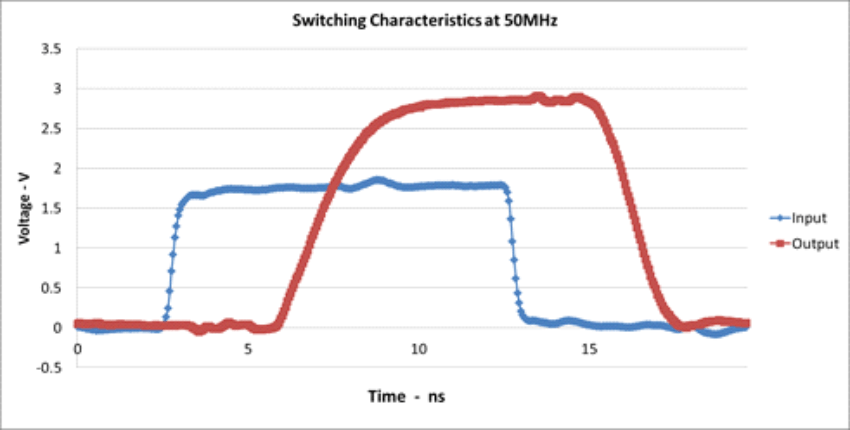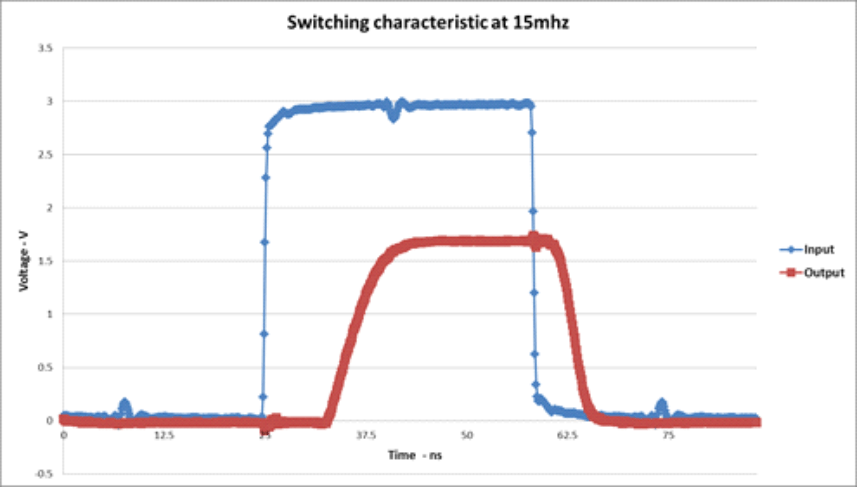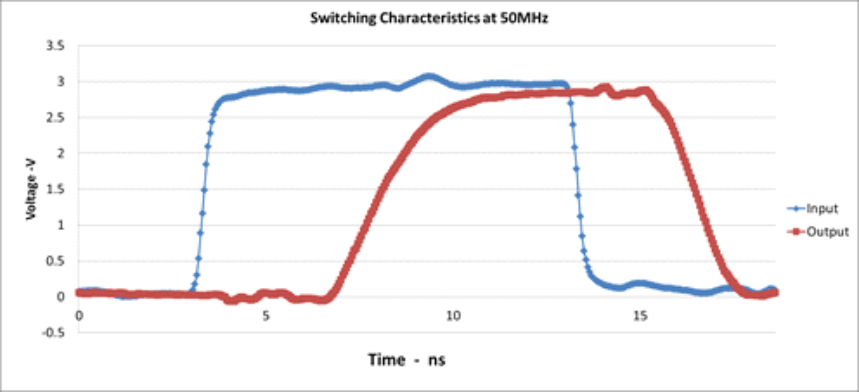SCLS741D November 2013 – May 2024 SN74LV1T32
PRODUCTION DATA
- 1
- 1 Features
- 2 Applications
- 3 Description
- 4 Related Products
- 5 Pin Configuration and Functions
- 6 Specifications
- 7 Parameter Measurement Information
- 8 Detailed Description
- 9 Application and Implementation
- 10Device and Documentation Support
- 11Revision History
- 12Mechanical, Packaging, and Orderable Information
6.8 Typical Characteristics

(1.8 V to 3.3 V at 3.3-V VCC)

(3.3 V to 1.8 V at 1.8-V VCC)

(3.3 V to 3.3 V at 3.3-V VCC)